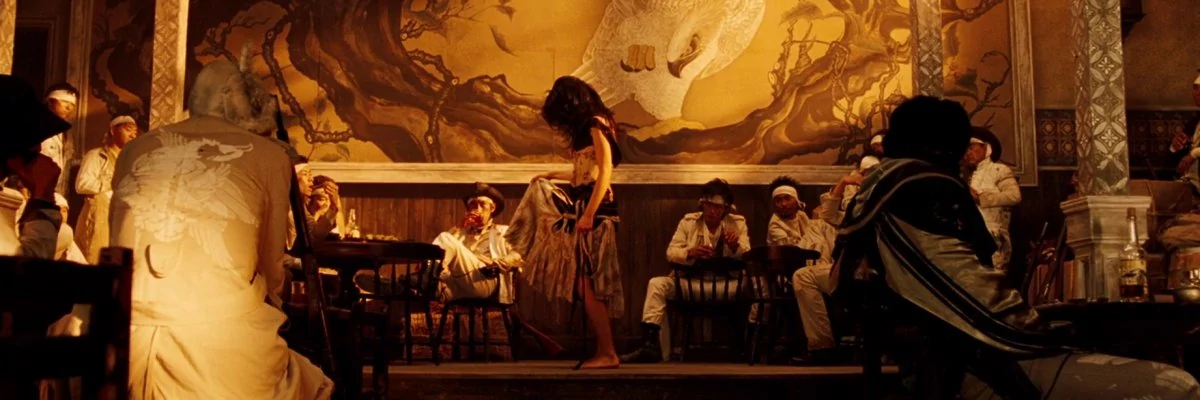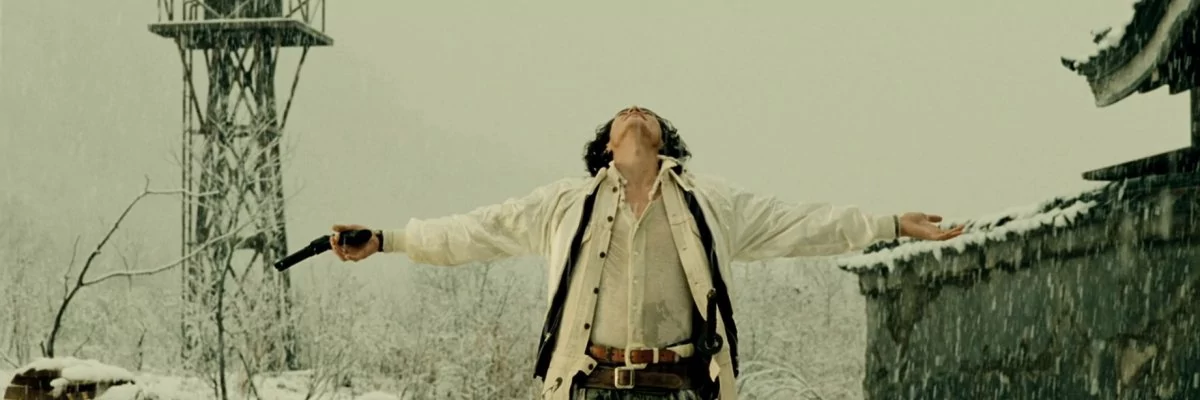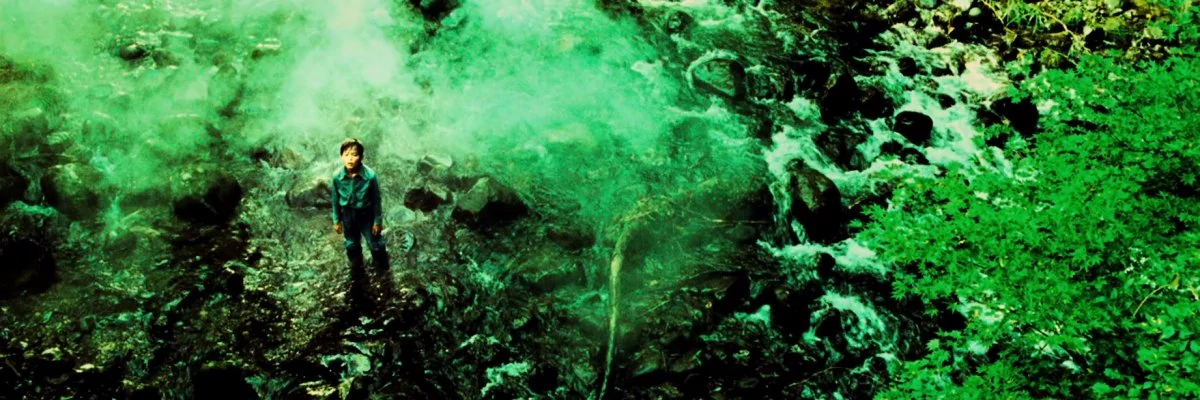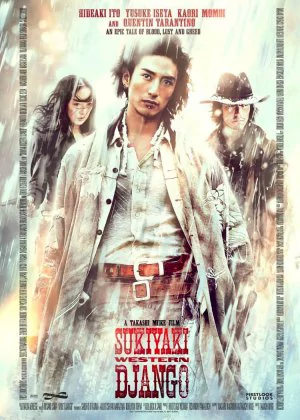Sukiyaki Western Django
It's no secret that westerns aren't really my cup of tea. It's a genre that is simply impenetrable for me, with even the best of the bunch failing to rise above mediocrity. But as is the case with everything, there are always exceptions to the rule, and what better director to break through that wall than Takashi Miike. Sukiyaki Western Django isn't my favorite film of his, but it did make the western genre way more amusing than is usually the case. It's been a while since I last watched this film though, so time to give it another shot and see whether it held up after all this time.

Truth be told, Sukiyaki Western Django isn't the only film to challenge my perception of the genre, there's also Sasanatieng's Tears of the Black Tiger. What these films seem to have in common is that they are both way more quirky and colorful than the usual western fare, which should give you a good idea of why I don't really like the genre. The drab and dull settings, combined with overly serious characters and poser attitudes are not something I can easily get into. And while there is no lack of posers in Miike's take, the lighter tone of the film makes sure it never gets on my nerves.
Because I'm no big western fan, I'm probably missing a bunch of references here, but that's hardly a problem. The basic premise of the film is extremely simple, with a lone rider arriving in a village that is torn between two outsider gangs. While a Tarantino-like reading here may add something extra for genre fans, I wonder if the disregard of other typical genre elements is making this film all that accessible to them. This isn't really an ode the western genre, but more of a reinterpretation through the eyes of one of Japan's most maverick directors.
When a nameless gunslinger arrives in Yuta, he is courted by the reds and the whites, two rivaling gangs who are holding the village hostage in the hope of finding its legendary treasure. The gunslinger isn't all that impressed with the gangs and decides it's probably better to stay out of their business, but he is a just man and when he sees the townsfolk suffer under their reign he cannot simply look away. He gets mixed up in their feud and it doesn't take long before people start dying left and right. Things only get worse when a Gatling gun finds its way into the village and it's pretty clear that the score is going to be settled once and for all.

Sukiyaki Western Django was made in a time when Miike had built up enough clout to sell a film solely on his reputation, which is reflected in the film's budget. Not that this is a genuine blockbuster, but there's clearly no more room for purely functional CG and haphazard camera work. The film looks slick from start to finish, with extra attention going out to the costume designs (a mix of vintage cowboy and modern Yakuza). Some fine use of color filters and trademark visual trickery (like the introduction, set again a colorful stage background) make this a film that is very easy on the eyes.
The soundtrack is less appealing, which is not too surprising for a Miike film. It's not bad either, but it's pretty basic and expected. I assume there are some references to older western tunes that I missed, the rest of the score is just generic background filler. It does the job, but it never makes a real difference. The sound effects do though, featuring plenty of exaggerated swooshes, clings and thunks to underline the action scenes. Overall the soundtrack scores decent points, even so your ears will still be tested, which brings me to the next point.
Sukiyaki Western Django features a mostly Japanese cast, but the dialogue is entirely in English. It's not a separate dub either, it's the Japanese actors doing their very best to deliver their English lines. Miike already tried the same in Imprint and the result is just as bad here. It's often excruciating to see solid, respectable actors struggle so much with the simplest of lines, to the point where I recommend watching the whole thing with subtitles. Apart from that, the actors are pretty decent, with Kôichi Satô and Yûsuke Iseya standing out as the competing leaders. There's also a small cameo from Tarantino by the way, but let's just say that even though he was the only native English speaker on the cast, his performance is pretty much on par with the rest of the actors.

Because Sukiyaki Western Django features English dialogue, it was a relatively easy film to market in the West. Even so, Miike's films are often considered to be a little lengthy over here, so it's no surprise that the international version misses a solid 20 minutes of material. I've never watched the shorter version and no doubt there are some bits that could be cut without hurting the film too much, on the other hand there's no scene or moment that I felt was truly redundant. I don't really see the need to watch the shortened version, but be aware that not every release out there offers both versions, so you might get stuck with a DVD or BluRay that simply depraves you of the option.
Miike's western isn't the film that made me fall in love with the genre, in the end I like it mostly for the elements that differ from the norm. Ultimately, this is a film for the typical Miike fan, he who appreciates the weirdness, the comical violence and the cinematic freedom you're unlikely to find anywhere else, especially in genre films. It's not quite as zany or extravagant as some of his other work, but there are plenty of vintage Miike moments that are sure to delight. Apart from the horrendous dialogues and stilted acting, this is another 120 minutes of creative and crazy entertainment.
